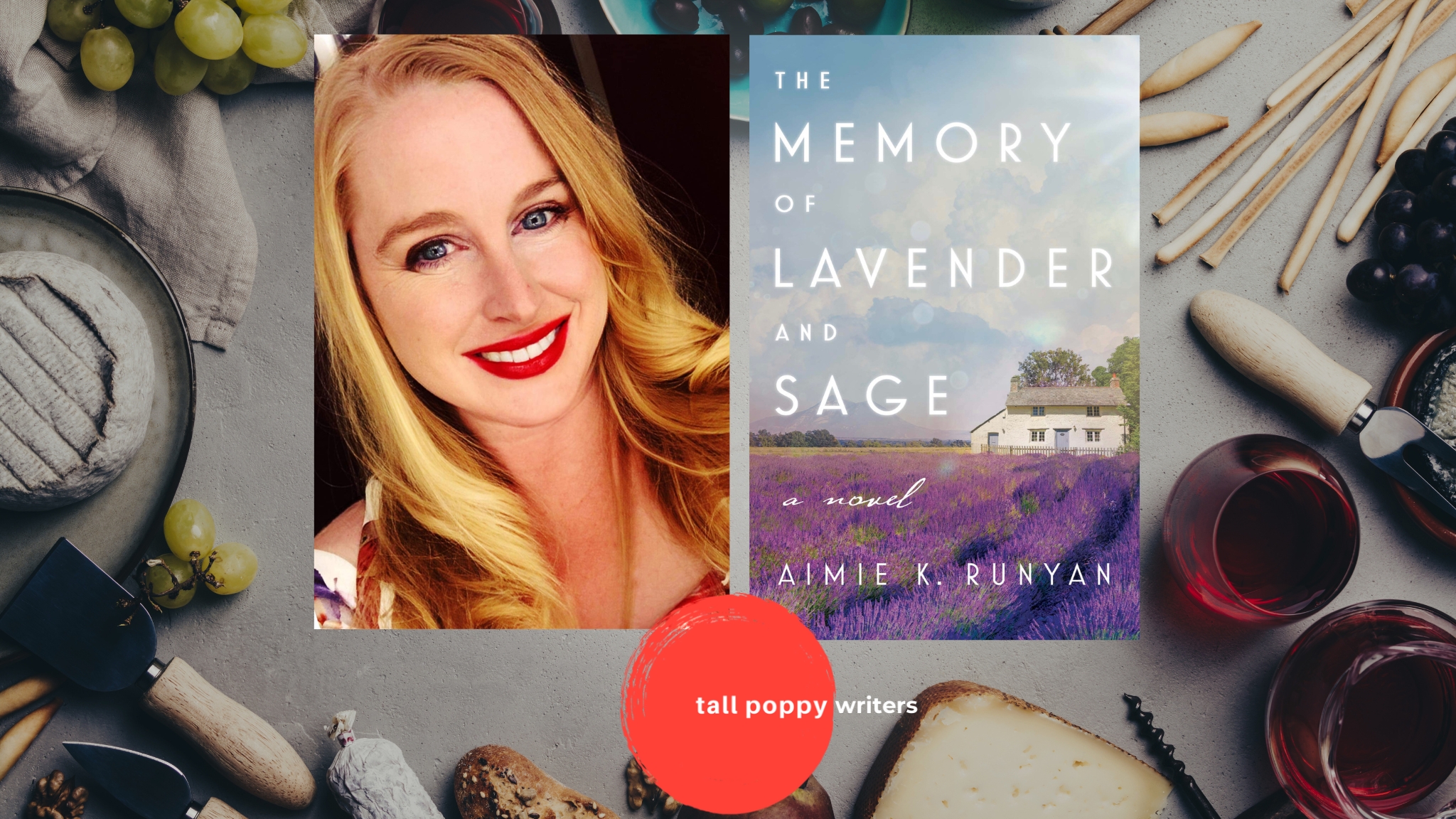Julia Child famously said, “People who love to eat are the best people” and in my experience, she’s right—and they are terribly fun to write about. In my latest novel, The Memory of Lavender and Sage, the protagonist Tempèsta Luddington is a disaffected food critic who, despite having a great job, yearns for something more fulfilling. She’s disenchanted with the corporatization of the New York foodie scene and finds her stride in the quaint village in Provence where her mother grew up. On the surface it appears to be the typical ode to the small-town life, hailing it as vastly superior to the bustle of the big bad city. The truth is a bit deeper. It’s not just about the pace of life and a yearning for some sort of traditional values of yesteryear that never really existed. It’s about a different approach to life—and food—altogether.
I write foodie characters because they tend to view the world differently. To these characters, food is more than gas in the tank to keep a body going. It’s a central part of their day and a focus of their daily lives. They’re willing to slow down the pace of their lives to source good ingredients to cook with, or to devote the time required for a carefully prepared multi-course restaurant meal. It is, to my mind, one of the most profound forms of self-care. I find this approach to life, one that goes against so many current norms, fascinating to explore in fiction.
This ties in closely with why I set a lot of my books in France. While American culture sees no problem in scarfing down a meal in 20 minutes during lunch break so you have time to pick up the dry cleaning, that would never stand in France. Though the custom is waning as the modern workplace becomes faster paced, two-hour leisurely lunches are considered a normal, expected occurrence. The eating habits of the French belie something greater than a mere appreciation for good food. It’s a fundamental belief that work is a means to an end, and not the driving force behind every decision we make. This flies in the face of so many things that we in the US accept as gospel, and I enjoy challenging those deep-seated beliefs.
I admit I take a fiendish delight when readers tell me my books made them hungry. I love it when I get a message telling me that a reader felt compelled to run to the corner bakery for a pastry before they could read another chapter. I’m gleeful when a reader lets me know they were inspired to cook a new food I mention in my books. It means they’ve had a visceral reaction to my work, and they understand one of its basic truths: food is something to be savored. Mealtimes should be respected as important pauses in our busy lives where time is permitted to pass more slowly, and we focus on the importance of nourishing our bodies and gathering with our friends and loved ones.
In a broader sense, I love writing foodie books about people who love food, because our cuisine says so much about who we are. Literature is meant to capture a slice of the human experience, and what is more universal than food? The exact ingredients and techniques vary greatly from culture to culture, of course, but the enjoyment of good food and pride taken in creating a well-prepared dish is something that transcends geography, belief systems, and social class. In a world full of turmoil and strife, I think it’s good to remind ourselves of this commonality. To write lovingly about food is to write lovingly about the human condition, and I think we need more of that.




